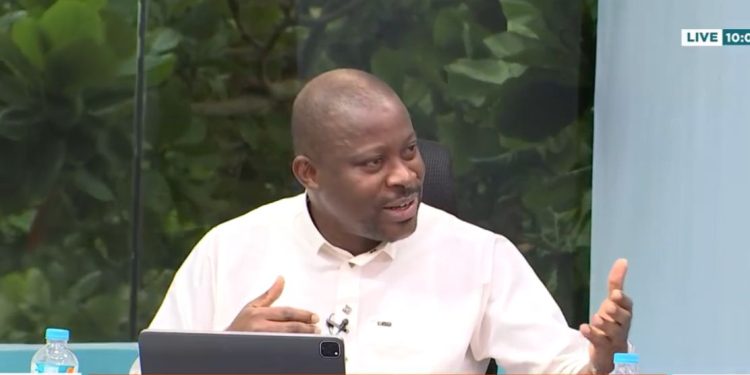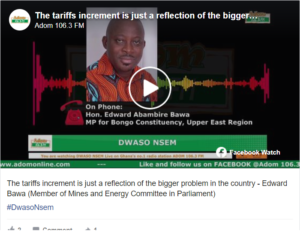Member of Parliament’s Mines and Energy Committee, Edward Bawa, has stated that the recent increase in utility tariffs is indicative of larger economic challenges facing Ghana.
His remarks follow the Public Utilities Regulatory Commission’s (PURC) announcement of a 3.02% rise in electricity tariffs and a 1.86% increase in water tariffs, effective October 1, 2024.
Mr Bawa highlighted how inflation and the depreciation of the cedi are affecting Ghanaians
Speaking on Adom FM’s morning show, Dwaso Nsem on Monday, he criticized the government’s inability to budget for such losses, citing constraints from the ongoing IMF program, which restricts subsidies.
“The increase in tariffs is just a reflection of the bigger problem in the country. I know someone who is battling with cancer and spends close to 10,000 cedis every month on medical bills, even though he is a pensioner. This is due to the depreciation of the cedi, as the medications are imported.
“The current state of the economy is impacting many Ghanaians, not just in the utility sector. Depending on the area you find yourself in, Ghanaians are suffering. The government has not budgeted to help the situation. If the government had made a budget allocation for the loss on utility, the increase could have been seen as a subsidy. However, the government is not allowed to provide subsidies under the current IMF program,” he said.
Mr Bawa also noted that, while the increment helps utilities, it further exposes the broader economic difficulties Ghanaians are enduring.
“From the angle of PURC and the utilities, it is a way of ensuring their survival. Even though we say our tariffs are supposed to be cost reflective, the utilities are not being adequately compensated for the services they provide. If the tariffs are not cost reflective, the value of their investments will decrease. So, for the utility side, it makes a lot of sense,” he explained.
Watch the video below:
Source: adomonline.com





